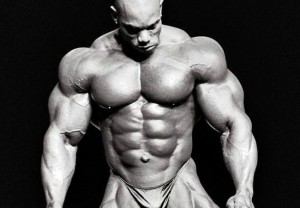There are many nutrients that are essential for health and wellness. While a balanced diet typically provides vital vitamins and minerals that support regular bodily processes, deficiencies aren’t uncommon.
Here are the 6 most common vitamin deficiencies and the symptoms to look out for.
1. Iron Deficiency
Iron is an essential component of red blood cells, binding with hemoglobin and transporting oxygen to cells throughout the body. Non-heme iron is the most common type of iron, found in both animal and plant foods, but it’s more challenging for the body to absorb it compared with heme iron. Heme iron is found in high amounts in red meat, which means that vegetarians and vegans are particularly at risk for developing iron deficiency.
Deficiency occurs in meat-eaters, too. In fact, iron deficiency is one of the most common nutrient deficiencies worldwide, affecting about one-quarter of the population around the globe. Some symptoms of deficiency include:
- Tiredness and weakness
- Weakened immune function
- Impaired brain function

2. Magnesium Deficiency
Magnesium is critical for healthy bone and teeth structure, but close to three-fourths of all adults in the U.S. consume less than the required daily amount. In fact, this nutrient is required by almost every cell in the body, regulating muscle function, heart rhythm and more.
The body can’t make magnesium, so you need to get it from your diet. Adequate sources of magnesium include almonds, spinach, broccoli and whole-grain bread. Most modern diets are low in magnesium-rich foods—if you’re concerned about your magnesium levels, look for:
- Muscle twitches, tremors and cramps
- Osteoporosis
- Mood disorders
3. Vitamin D Deficiency
Vitamin D gets its nickname, the “Sunshine Vitamin,” because it’s produced from cholesterol in your skin during exposure to sunlight. This fat-soluble vitamin travels through the blood stream and into cells, supporting healthy bones and muscles, as well as energy production.
People who live in cooler climates, particularly those without abundant sunshine, are most at-risk for vitamin D deficiency. It’s estimated that 95% of all adults in the United States don’t get enough of this vitamin, and as many as 50% of these individuals qualify as D-deficient. If you suspect you may be vitamin D deficient, look for the following symptoms:
- Muscle and bone weakness or pain
- Increased risk of fractures
- Mood disorders

4. Vitamin E Deficiency
Vitamin E prevents free radicals from harming (or even killing) otherwise healthy cells. While research is ongoing, studies show that maintaining appropriate vitamin E levels prevents oxidative stress from damaging cells throughout the body. Since oxidative stress is linked to cancer, diabetes, heart disease and a whole host of conditions, getting enough vitamin E in your diet—whether from whole foods like nuts, pressed oils and leafy greens, or from supplements—is critical.
While very few people are clinically deficient in vitamin E, many people aren’t getting the recommended daily amount of 15mg. If you feel you might not be getting enough vitamin E, look for symptoms like:
- Nerve and muscle damage resulting in loss of feeling in arms and legs
- Vision problems
- Weakened immune system
5. Vitamin B12 Deficiency
Also known as cobalamin, this water-soluble vitamin plays a role in blood formation, brain function and nerve function. Every cell throughout the body needs B12 to function normally—unfortunately, the body is unable to produce it. Making matters even more difficult, B12 is only found in sufficient amounts in animal foods, so vegetarians and vegans may be B12 deficient.
The elderly are also at risk of B12 deficiency, since absorption decreases with age. People lacking in intrinsic factor protein are also at risk of deficiency since it’s an essential nutrient for B12 absorption. Here’s what to look out for:
- Megoblastic anemia, a blood disorder that enlarges red blood cells
- Impaired brain function
- Muscle weakness, decreased appetite, nausea and weight loss
6. Calcium Deficiency
Like B12, calcium is an essential nutrient for every cell in the body. It’s well-known for strengthening bones and teeth, but it also serves as a signaling molecule, aiding heart, muscle and nerve function. Calcium levels in the blood are tightly regulated, and all excess is stored in bones. If you’re deficient, your bones will release calcium, making them softer and more fragile in the process (osteoporosis).
A majority of adults around the world don’t receive their recommended calcium intake each day. Many leafy green vegetables should be included in ones diet for greater calcium intake. Here are signs you may need more calcium:
- Osteoporosis (in older adults)
- Soft bones, or rickets (in children)
- Muscle cramps and spasms

Supplements And Diet Can Help Address Vitamin Deficiencies
Worried that you’re not getting enough of the essential nutrients your body needs to maintain good health? Adjusting your diet can help, but it may still often be difficult to maintain adequate vitamin levels. Remember to firstly include a wide range of vegetables and fruits to ensure you are getting the various vitamins and minerals that your body needs.
Supplementing can be a safe, effective solution. Always consult a doctor before taking a supplement to determine whether it’s right for you and choose the supplements wisely. The common deficiencies listed above have a direct impact on your overall health. Talk to your doctor today to make sure you’re getting the nutrients you need to live a happier, healthier life.



















